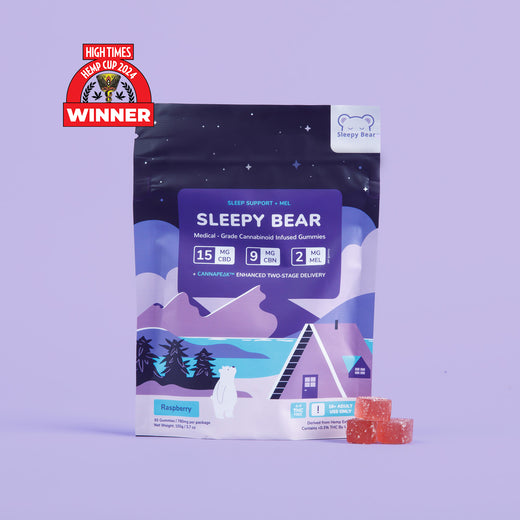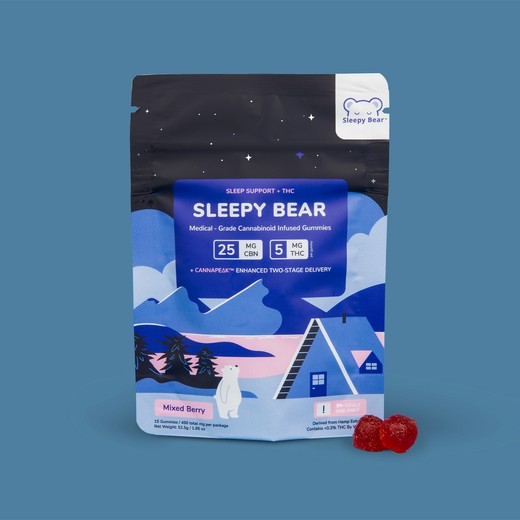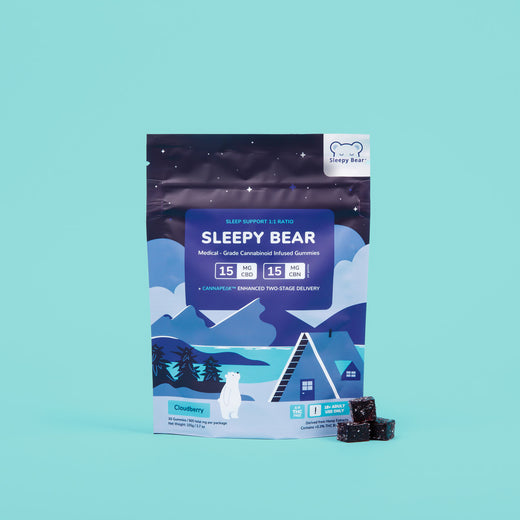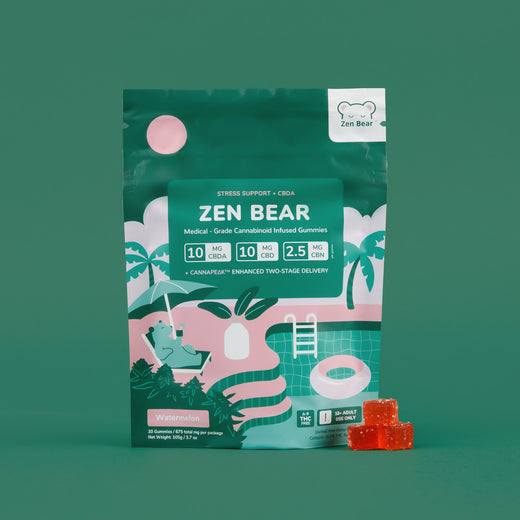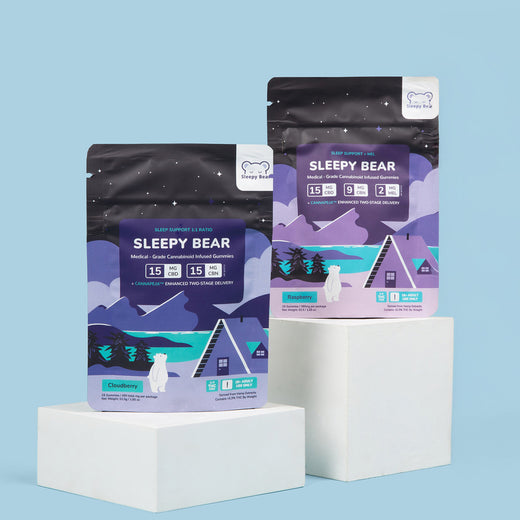Where Is Hemp Δ-9 THC Legal? A guide to Hemp Derived THC.
A State By Guide to Hemp Delta-9 THC Legality Across the US:
Alabama: In Alabama, hemp-derived Delta-9 THC is considered legal. This legality stems from the state's alignment with the Federal Farm Bill through Senate Bill (SB) 225, which acknowledges hemp Delta-9 THC as legal when it does not exceed 0.3% by weight. Further regulations were introduced in 2023 through SB 66, which specifically restricts the sale and possession of intoxicating hemp products to individuals who are 21 years of age or older.
Alaska: Unlike Alabama, Alaska has chosen to ban hemp Delta-9 THC. The state's legislative framework, established by SB 6, adopts the Farm Bill's definition of hemp but goes a step further by prohibiting the sale of hemp products containing any THC. This regulation came into effect on November 3rd, 2023. It is important to note that while hemp Delta-9 THC is banned, the use of marijuana for adult recreational purposes is permitted in Alaska. Additionally, the state classifies other THC variants like Delta-8, Delta-10, and THC-O as controlled substances.
Arizona: Arizona maintains a legal status for hemp-derived Delta-9 THC. The state's legislation, through SB 1098, not only aligns with the Federal Farm Bill's language on industrial hemp but also includes provisions that implicitly allow for the continuation of hemp commerce at the state level, provided it is federally legal. This effectively means that, barring any future state legislation to the contrary, Delta-9, Delta-8, and other hemp cannabinoids remain legal within Arizona.
Arkansas: In Arkansas, the legality of hemp Delta-9 THC has been affirmed. The state legalized industrial hemp in 2017, and the most current legislative document, House Bill (HB) 1640 (Act 565), defines legal hemp as cannabis plants containing less than 0.3% Delta-9 THC on a dry weight basis. Although Act 629 was passed aiming to regulate Delta-8 THC and similar cannabinoids, enforcement has been halted due to a recent court ruling, reverting the legal framework back to the stipulations of the older bill.
California: California Governor Gavin Newsom has recently enacted an emergency ban on hemp-derived products, including those containing any levels of THC or THCV. This ban has taken effect immediately and completely prohibits the sale, warehousing, production, and transportation of products containing hemp-derived THC or THCV within and outside of California. This sweeping action impacts 90-95% of hemp products currently on the California market, causing significant disruption, particularly for consumers that rely on these products for medicinal purposes. Companies like ours are now faced with the difficult choice of either ceasing operations entirely or relocating out of California to continue business. We are extremely disheartened to see this order be placed into effect after years of collaborative efforts to effectively regulate hemp in the state. These actions are a direct assault on both consumer and business rights as it by passes the legislative process and will do nothing but destroy businesses who were properly complying with current California law. The executive order is set to remain in place until at least March 2025. In response, we are preparing for potential legal challenges, arguing that this ban represents a clear overreach by the state, violates federal law, and disrupts interstate commerce.
Colorado: Colorado allows the legal sale of hemp Delta-9 THC, contingent on meeting new dosage requirements. The state legalized hemp with the passage of SB 19-220 in 2019, and subsequent clarifications from the Department of Public Health and Environment, alongside the Marijuana Enforcement Division, have outlined that any chemical modification or conversion of naturally occurring cannabinoids from industrial hemp falls outside the legal definition of an 'industrial hemp product.' In 2023, Colorado introduced SB 23-271, setting forth specific dosage limits for hemp products, permitting hemp Delta-9 THC under the condition that it contains less than 1.75 mg of THC per serving, with no more than five servings per container, and maintains a CBD to THC ratio of 15:1 or higher.
Connecticut: Connecticut mandates that hemp Delta-9 THC products be sold only in state-licensed dispensaries, except for those of very low potency. The state legalized industrial hemp through SB 893, adopting the Farm Bill's definitions and requirements. However, a new category termed "high THC hemp product" was created by SB 6699 in 2023, categorizing such products similarly to marijuana and setting strict limits on THC content for edibles.
Delaware: In Delaware, hemp Delta-9 THC is illegal. Despite the state legalizing marijuana (with sales projected to start in late 2024), Delaware's hemp law (SB 266) diverges from the practices of most other states by not exempting hemp's THCs from the controlled substances act, thus prohibiting the sale of any hemp products containing THC.
Florida: Hemp Delta-9 THC is legal in Florida, as established by SB 1020, which defines hemp in accordance with the 2018 Farm Bill, explicitly permitting Delta-9 THC content up to 0.3% by dry weight. Additionally, SB 1676 has been enacted to prevent the sale of intoxicating hemp products to individuals under the age of 21.
Georgia: The state of Georgia recognizes hemp Delta-9 THC as legal. This is based on HB 213 passed in 2019, which legalized industrial hemp in alignment with the Farm Bill, allowing for hemp Delta-9 THC content of up to 0.3% by dry weight. While there have been discussions regarding the legality of other THC isomers, Delta-9 THC is explicitly included under the state's definition of "hemp."
Hawaii: Hemp Delta-9 THC is legal in Hawaii, provided it is sourced naturally. The legalization came through HB 2689 in 2020, aligning with the Farm Bill to permit hemp and hemp-derived compounds. Subsequent administrative rules enacted in February 2022 have clarified that products produced through isomerization are not allowed, thus restricting the legal status to naturally obtained hemp Delta-9 THC products. Enforcement of these rules, however, has been reported as inconsistent.
Idaho: Idaho presents one of the strictest regulatory environments for hemp in the United States. Under the Idaho Uniform Controlled Substances Act, the presence of any amount of THC or its isomers in products renders them illegal, making the sale of hemp Delta-9, Delta-8, and even most CBD products practically impossible. Although this stance was articulated in a 2015 opinion by the state's Attorney General, it continues to significantly impact the hemp industry within Idaho.
llinois: Illinois has legalized hemp Delta-9 THC following the signing of the Industrial Hemp Act into law in 2018. This legislation aligns with the Farm Bill by setting a 0.3% limit on Delta-9 THC content by dry weight, thus permitting the legal cultivation and sale of industrial hemp within the state.
Indiana: In Indiana, hemp is legally defined in concordance with the Farm Bill under SB 516. As long as the Delta-9 THC concentration does not exceed 0.3% by dry weight, hemp products are considered legal. Despite ongoing legal disputes within the state, the legal status of hemp Delta-9 THC remains unaffected, with consensus affirming its inclusion under the state's legal definition of hemp.
Iowa: Iowa permits the legal sale of hemp Delta-9 THC, with specific restrictions in place. The Iowa Hemp Act, which adopts the federal definition of hemp, stipulates that hemp products must contain less than 0.3% of all THC types combined, a regulation that impacts Delta-8 THC products but typically does not affect hemp Delta-9 products. Importantly, products designed for inhalation are excluded from this allowance.
Kansas: Hemp Delta-9 THC is legally recognized in Kansas under HB 2167. This legislation utilizes the 2014 Farm Bill's definition of hemp, allowing for Delta-9 THC concentrations of up to 0.3% by dry weight. However, the law also includes all THC isomers within its 0.3% THC limit, thereby restricting most Delta-8 THC products while maintaining the legality of hemp Delta-9 THC products.
Kentucky: Kentucky has legalized hemp Delta-9 THC, aligning with the 2018 Farm Bill's language through the enactment of HB 197. While there was a noted dispute regarding the legal status of Delta-8 THC, the legality of Delta-9 THC was never in question. Additionally, the state has implemented restrictions on the sale of THC products to individuals under the age of 21.
Louisiana: In Louisiana, hemp Delta-9 THC is legally available for sale to individuals who are 21 years of age or older. This is facilitated by HB 758, which introduced a category for "adult-use consumable hemp products" defined as containing more than 0.5 mg of THC per package. The legislation sets a dosage limit of 8 mg per serving and prohibits sales to those under 21, yet still permits the commercial sale of these products.
Maine: Under LD 630, Maine defines industrial hemp in accordance with the Farm Bill, thereby legalizing hemp-derived Delta-9 THC within the state.
Maryland: Hemp Delta-9 THC is legal in Maryland following a court decision that temporarily prevented the enforcement of HB 556, a bill perceived as creating a monopoly for the marijuana industry. As a result, HB 1123 serves as the current regulatory framework, under which hemp Delta-9 THC is legally recognized. Although SB 788 established certain age restrictions for hemp, these do not seem to apply to Delta-9 THC, focusing instead on Delta-8 and Delta-10 cannabinoids.
Massachusetts: Despite Massachusetts' alignment with the Farm Bill definition of hemp, which theoretically permits Delta-9 THC content up to 0.3% by dry weight, the practical legality of hemp Delta-9 THC products is constrained. The Department of Agricultural Resources maintains a list of approved hemp product types, which does not include cannabinoid-containing edibles, vapes, or hemp flower – the common forms in which hemp Delta-9 THC products are found. Thus, while hemp Delta-9 THC may be legal in theory, its commercial sale in practice faces significant restrictions.
Michigan: Hemp Delta-9 THC is legal in Michigan, as formalized by HB 4744, which legalized industrial hemp using the same definitions as the Farm Bill. However, subsequent legislation, HB 4517, effectively rendered Delta-8 THC illegal by categorizing all THC types together, thereby limiting the legal THC product market to primarily include hemp Delta-9 THC.
Minnesota: The state of Minnesota recognizes hemp Delta-9 THC as legal. The Industrial Hemp Development Act, aligning with the Farm Bill, was further clarified by HF 4065. This legislation adjusted the 0.3% THC limit to encompass all THC isomers and stipulated that hemp cannabinoid products, including Delta-9, can only be sold to individuals who are 21 years of age or older.
Mississippi: Despite SB 2725 legalizing hemp in accordance with the Farm Bill, the sale of hemp Delta-9 THC products in Mississippi is not legally sanctioned. The state's removal of hemp from the controlled substances bill's definition of marijuana and THC came with the caveat that products intended for human consumption are excluded unless approved by the FDA. Consequently, while no hemp products are technically legal under this framework, the open sale of hemp products in Mississippi continues, casting uncertainty over the practical enforcement of the law.
Missouri: Missouri legalized industrial hemp and, by extension, hemp Delta-9 THC in 2018 through HB 2034, which adopts the definitions outlined in the Farm Bill. This legislation ensures the legal status of hemp Delta-9 THC within the state.
Montana: Montana's approach to hemp Delta-9 THC legality is nuanced. While industrial hemp was legalized early on in 2001 through SB 261, using definitions and limits akin to those later established by the Farm Bill, the state passed HB 948 in 2023. This bill prohibits the sale of artificially produced cannabinoids, colloquially termed "synthetic cannabinoids," and applies the 0.3% THC limit to all THC types combined. Therefore, hemp Delta-9 THC products are legal in Montana as long as the THC is naturally derived and the total THC content does not exceed 0.3%. Products failing to meet these criteria must be sold within the regulated marijuana industry.
Nebraska: Nebraska's adoption of LB 657 in 2019 legalized industrial hemp and established a legal framework consistent with the 2018 Farm Bill. As a result, hemp Delta-9 THC is legal in Nebraska, adhering to the same definitions and THC limits specified at the federal level.
Nevada: Nevada permits the legal sale of hemp Delta-9 THC, with SB 305 establishing a definition of hemp that includes the Farm Bill's 0.3% THC limit. However, this limit is extended to encompass THC isomers, as explicitly mentioned in 2021's SB 49, which also classifies "synthetic cannabinoids" to include any artificially produced substances. Thus, hemp Delta-9 THC is legal in Nevada provided it is derived naturally and adheres to the 0.3% limit for all THC types by dry weight.
New Hampshire: In New Hampshire, hemp Delta-9 THC is legally recognized. HB 459, signed into law in 2019, defines hemp in line with the Farm Bill, a definition further clarified by HB 611 to apply the 0.3% THC limit across all THC types. Consequently, hemp Delta-9 THC products are generally compliant with New Hampshire law, assuming they meet these criteria.
New Jersey: Following the Hemp Farming Act, New Jersey has legalized hemp, including Delta-9 THC, as long as products adhere to the 0.3% Delta-9 THC limit by dry weight, as defined in the Farm Bill. At the time of writing (November 2023), legislation is under consideration that might impose a similar limit for Delta-8 THC, although this would not affect the legal status of hemp Delta-9 THC.
New Mexico: New Mexico has legalized hemp, including Delta-9 THC, within the conventional limit established by the Farm Bill. This was achieved through the Hemp Manufacturing Act, aligning state law with federal guidelines and ensuring the legality of hemp Delta-9 THC within the stipulated THC content limit.
New York: In New York, natural hemp Delta-9 THC is legal. The state's major legislation on industrial hemp, enacted in March 2020, adopts the Farm Bill's definitions, thereby permitting hemp Delta-9 THC by default. However, a clarification issued in November 2021 via state regulations specifies that cannabinoids produced through isomerization (a process used for creating Delta-8 THC and some Delta-9 products from CBD) are not allowed within the state's hemp program. Thus, hemp Delta-9 THC is legal in New York as long as it is derived naturally.
North Carolina: North Carolina has legalized hemp Delta-9 THC following the enactment of S455 in 2022. This legislation legalizes hemp cannabinoids up to a 0.3% Delta-9 THC limit, in accordance with the federal Farm Bill. The bill utilizes the standard definition of hemp and exempts hemp products from the sections of the state's controlled substances list that would otherwise prohibit them.
North Dakota: In North Dakota, hemp Delta-9 THC is technically legal, although the state's regulatory framework presents certain challenges. Amendments to the original hemp law explicitly include all THC types within the 0.3% limit and additionally prohibit the chemical conversions typically used to create Delta-8 and many Delta-9 products from CBD. While it remains possible to produce legal hemp Delta-9 THC under these conditions, the practicality of doing so is considerably reduced.
Ohio: Ohio has legalized hemp, including Delta-9 THC, with the passage of SB 57. This legislation uses the Farm Bill's definition of hemp, thus recognizing hemp Delta-9 THC as legal. It also establishes that other THC isomers present in hemp are legal within the state.
Oklahoma: Oklahoma permits the legal sale of hemp Delta-9 THC. Initially establishing a pilot program for hemp through HB 2913, the state later solidified its commitment to hemp agriculture with SB 868, making the program permanent. This legislative action follows the language of the 2018 Farm Bill and exempts hemp from the state's controlled substances bill, thereby legalizing hemp Delta-9 THC, Delta-8, and other cannabinoids within the federal THC content guidelines.
Oregon: Hemp Delta-9 THC is legal in Oregon, although the state has introduced more complex regulations through HB 3000. These regulations aim to address concerns surrounding intoxicating hemp products by defining an "adult use cannabis item" to include hemp-derived cannabinoids exceeding certain THC thresholds, currently set at 2 mg of THC per serving and 20 mg per container. Products exceeding these levels are still permitted but fall under the regulatory purview of the Oregon Liquor and Cannabis Commission (OLCC). Additionally, the legislation stipulates that Delta-9 THC cannot be derived artificially, limiting the legal market to products containing naturally sourced THC.
Pennsylvania: The legal status of hemp Delta-9 THC in Pennsylvania is somewhat ambiguous, largely due to interpretive challenges associated with state law. Pennsylvania's hemp legislation, enacted in 2016, was initially focused on research, with the Department of Agriculture overseeing hemp regulation under the Controlled Plants and Noxious Weeds Act. Although the established hemp rules include the Farm Bill's 0.3% THC limit, thereby implying the legality of hemp Delta-9 products, the state's controlled substances list does not make a clear exemption for hemp. This lack of clarity has led to debates over the legality of Delta-8 THC, with similar questions potentially applicable to hemp Delta-9 THC. Police actions have seen seizures of Delta-8 and Delta-10 products while apparently leaving hemp Delta-9 products untouched, and ongoing legal disputes further muddy the waters. As a result, hemp Delta-9 THC appears to be de facto legal in Pennsylvania, though the precise legal standing remains uncertain.
Puerto Rico: In Puerto Rico, hemp Delta-9 THC is entirely legal, with the territory's hemp program adopting the definitions and limits set forth in the Farm Bill. This alignment ensures the unambiguous legal status of hemp Delta-9 THC in Puerto Rico.
Rhode Island: The legal status of hemp Delta-9 THC in Rhode Island is likely secured, albeit with some caveats. The state's Hemp Growth Act adopts the Farm Bill's definition of hemp, legalizing cannabis plants containing less than 0.3% Delta-9 THC by dry weight, along with all derived products, extracts, and cannabinoids. However, while hemp is exempted from the definition of marijuana, there is no corresponding exemption from the definition of THC. This leaves the legal status of Delta-8 THC and other isomers in question, though the specific mention of Delta-9 THC within the definition of hemp, as legalized by the Hemp Growth Act, suggests a legal exception for this cannabinoid from the controlled substances list for THC.
South Carolina: South Carolina has legalized hemp Delta-9 THC, adhering to the federally defined THC limit for hemp as established in the Farm Bill. The state's hemp legislation explicitly aligns with these federal guidelines, thereby confirming the legal status of hemp Delta-9 THC. However, an opinion issued by Attorney General Alan Wilson interprets the state's hemp law to mean that only Delta-9 THC at up to 0.3% by dry weight is exempt from the state's controlled substances bill, implying that Delta-8 THC and other isomers are illegal. Nevertheless, this interpretation reaffirms the legality of hemp Delta-9 THC within South Carolina.
South Dakota: Hemp Delta-9 THC is legal in South Dakota as per HB 1008, which was signed into law in 2020. This legislation follows the language of the Farm Bill, thereby legalizing hemp Delta-9 THC alongside Delta-8 and other isomers, despite the state's generally stringent stance on cannabis. HB 1292, enacted subsequently, establishes a minimum age of 21 for the purchase of Delta-8 THC, THC-O, and HHC, but does not specifically mention hemp Delta-9 THC, leaving its legal status unaffected by this age restriction.
Tennessee: In Tennessee, hemp Delta-9 THC is legal for adult use, provided it complies with specific regulatory requirements established by SB 378. This bill prohibits the sale of hemp Delta-9 or any "hemp-derived cannabinoid" to individuals under the age of 21 and sets forth guidelines for lab testing and product packaging. As a result, while hemp Delta-9 THC remains legal in Tennessee, it is subject to these regulatory constraints.
Texas: Texas defines hemp in accordance with the Farm Bill through HB 1325, thereby legalizing hemp Delta-9 THC as long as products meet the 0.3% Delta-9 THC limit. Despite a high-profile attempt to ban Delta-8 THC in the state, hemp Delta-9 THC's legal status remains secure under current legislation, although stakeholders are advised to stay informed of any potential legal changes.
Utah: Utah permits the legal sale of hemp Delta-9 THC, with HB 227 specifying that it must be produced naturally and contain no more than 5 mg of THC per serving or 150 mg per package. This legislation clarified the regulatory framework for industrial hemp in Utah, aiming to limit products like Delta-8 THC by applying the 0.3% THC limit to all isomers and prohibiting artificially derived products. Consequently, only naturally extracted hemp Delta-9 THC products are legally permissible in Utah.
Vermont: Vermont's state hemp law adheres to the Farm Bill's THC limits, thereby legalizing hemp Delta-9 THC within these parameters. However, the state considers Delta-8 THC to be illegal due to the synthetic processes required to produce it in high quantities, which are also used in the production of many hemp Delta-9 THC products. As such, only naturally derived hemp Delta-9 THC is legal in Vermont, with products utilizing these synthetic conversions banned.
Virginia: While most commercial hemp Delta-9 THC products are technically not legal in Virginia, the state allows for hemp Delta-9 THC provided it meets specific criteria. SB 903 establishes limits for hemp products, permitting those that contain no more than 2 mg of total THC per package or have a CBD to THC ratio of 25:1 or higher. This regulation implies that the majority of commercially available hemp Delta-9 THC products do not meet the state's legal requirements.
Washington: In Washington, any hemp Delta-9 THC product must be sold as marijuana, following the enactment of SB 5367 in 2023. The state maintains the Farm Bill's definition of "hemp" but considers any product with detectable levels of THC to be a cannabis product. As such, these products are only available to adults aged 21 or older in state-licensed dispensaries, aligning hemp Delta-9 THC products with the regulated marijuana market.
West Virginia: Hemp Delta-9 THC is legal in West Virginia, provided it is derived naturally. The state's legislation, SB 220, passed in 2023, upholds the 0.3% THC limit for Delta-9 THC in hemp but explicitly prohibits synthetically produced cannabinoids like Delta-8 THC. As a result, many hemp Delta-9 THC products, which are produced synthetically, are illegal in West Virginia. Only those hemp Delta-9 THC products obtained through natural processes are permitted, with sales restricted to individuals aged 21 or over.
Wisconsin: In Wisconsin, hemp Delta-9 THC is legal, as defined by Wisconsin Stat. 94.55. The state's legislation aligns with the Farm Bill, setting a 0.3% limit by dry weight for Delta-9 THC in hemp. Consequently, Delta-9 THC is legally recognized as hemp within this THC content threshold. The Wisconsin Legislative Council has argued that synthetically produced Delta-8 THC is illegal, a position that would theoretically apply to synthetically produced Delta-9 THC as well. However, this distinction is not explicitly made in the state law, leaving some ambiguity regarding the legal status of synthetic cannabinoids.
Wyoming: Wyoming legalized industrial hemp and its cannabinoids, including Delta-9 THC, through HB 171, adopting the language of the Farm Bill. This legislation ensures that hemp Delta-9 THC, along with Delta-8 and other cannabinoids in hemp products, is legal as long as they meet the 0.3% Delta-9 THC limit. Additionally, HB 108, enacted in 2023, restricts the sale of hemp Delta-9 THC edibles or vape products to individuals aged 18 or over, introducing an age limit for these products.
Washington D.C.: Washington D.C. does not have a specific hemp law, but marijuana is legal for adult use for those aged 21 or over within the district. Consequently, hemp Delta-9 THC would likely fall under the category of marijuana, meaning possession would not be penalized. Additionally, a "gray market" operates in the district, allowing for the open sale of hemp products despite the absence of formal legal sales. This market dynamic indicates that, even without explicit legal recognition of hemp sales, hemp products, including those containing Delta-9 THC, are still openly sold in Washington D.C.
Disclaimer: The information provided here does not, and is not intended to, constitute legal advice or reliable statements of the status of any laws. The accuracy of the information here is not guaranteed due to rapidly changing legal landscapes. Please consult with local laws and regulations before purchasing to ensure full and current legal compliance. Sleepy Bear is not liable for any legal liability arising from products purchased or received that may violate local laws.

